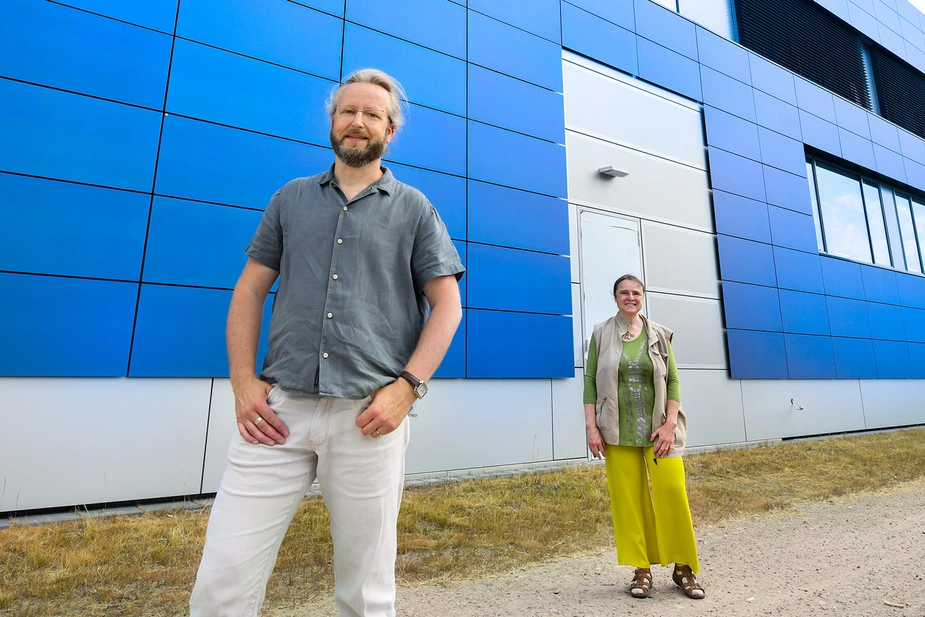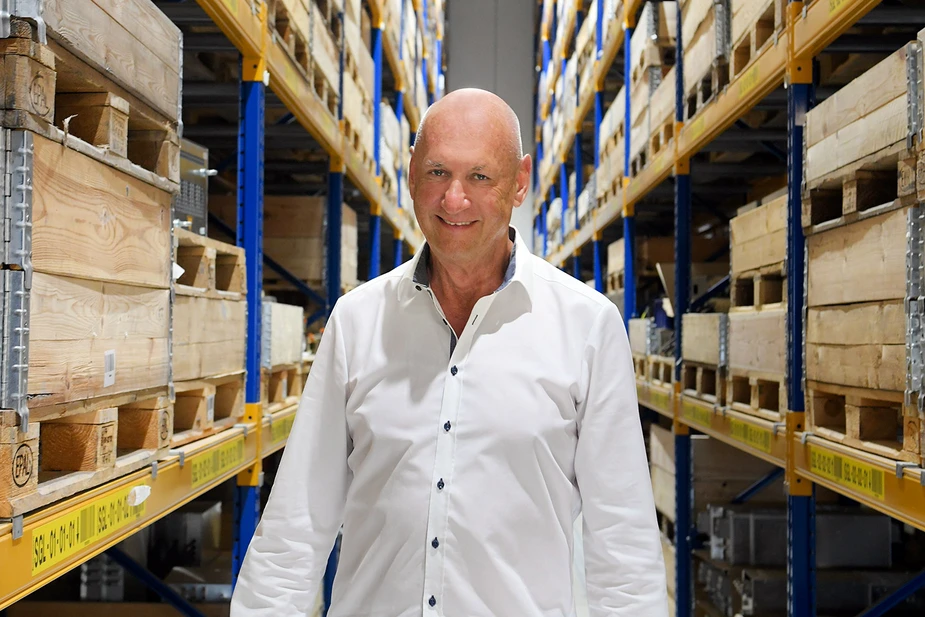Because it’s better!
Adlershof-based institutes and companies demonstrate how sustainability works
Even without adhering to politically agreed upon goals, Adlershof-based institutes and companies are working and researching sustainably. One could say, it’s part of their DNA. We asked around which ideas and actions they are creating to contribute to a more responsible way of treating with the planet.
“We research sustainability and do sustainable research,” says Karin Haas, sustainability representative of Helmholtz-Zentrum Berlin für Materialien und Energie (HZB). This is the research centre’s motto in a nutshell. “We conceive sustainability as a process that is under continuous development,” explains Haas. A catchy phrase with substance: The ambitious goal of HZB is to become carbon neutral by 2035.
To further advance the sustainability issue, HZB formed an environmental team a good two years ago. About 50 employees jointly and continuously develop ideas on how to improve HZB’s carbon footprint. The resulting suggestions are then forwarded to the Environmental Workgroup, which reviews them and brings them to the attention of management. This process has been quickly bearing fruit: The high electrical consumption of large-scale research facilities and laboratories, for example, has been satisfied using green energy since early 2020, creating annual savings of 17,400 tons of CO2 (compared to 2018).
Another ambitious goal: "In the post-pandemic period, business trips by air are to be measurably reduced by at least 25 percent annually for European and intercontinental flights, and by at least 75 percent for domestic flights compared to the average of the period between 2015 and 2019," says Haas. For commuting, HZB now has a digital carpool notice board on the intranet, a discounted company ticket for public transport, and charging stations for electric cars. In addition to the bicycle repair stations, which are already available, HZB is planning to appoint a company bicycle coordinator and to receive certification as a “bike-friendly employer”. It is also working on redesigning its facilities to make them greener. At the Adlershof site, it is planned to plant bee-friendly shrubs and nesting boxes, thus contributing to more biodiversity. Leaf vacuums are generally prohibited, leaf blowers are only permitted on asphalt and concrete surfaces.
How its research is contributing to a more sustainable way of life is exemplified by HZB’s Competence Centre Thin-Film- and Nanotechnology for Photovoltaics Berlin (PvcomB): it develops thin-film photovoltaics technologies and products together with the industry. “We conduct applied research that is geared towards technology and knowledge transfer with partners from the industry,” says Björn Rau, co-head of PvcomB. One of their specialties are solar modules that can be integrated into building exteriors inconspicuously, increasing their acceptance among architects and construction managers. A new HZB building, the so-called Testing Hall at BESSY II, shows what this looks like and how it works in practice—the solar modules luminate in a strong blue and are hardly recognisable as such. Scientists are now researching how well this solution works out in the long term under real-life conditions. In the process, they will gain insights that they will be able to pass on to professionals in architecture and construction as part of the Advice Centre for Building-Integrated Photovoltaics (BAIP), which offers personalised consultations and special training courses on innovative solutions for building exteriors. Because: “Most of the time, the problem is not a lack of technology but a lack of knowledge transfer,” says Rau. “Our aim is to build bridges between the world of construction and the innovations in photovoltaics.” Consulting is independent and free of charge.
FUSS-EMV GmbH is a specialist for developing and manufacturing special filters to dampen electromagnetic disturbances in high-performance devices. In this way, it is contributing to more sustainability through its business model alone. “On the one hand, we are specialised on solving problems in systems for producing renewable energy. On the other hand, we develop and manufacture our products in Germany, ensuring short delivery routes,” explains CEO Volker Keddig.
The Adlershof-based company took part in Berlin’s programme for sustainable development (BENE) and has decreased its annual emissions by a CO2 equivalent of about 38.6. tons. The company’s 6,500-square-metre office and manufacturing spaces are powered with geothermal energy, Kedding says, saving 80,000 tons of CO2 emissions per year. Moreover, photovoltaics systems on the building’s roof and exterior produce 100,000 kWh of green electricity, which goes towards powering the first electric car of the company’s car fleet, among many other things. The newest project: All the company’s light bulbs were renewed, resulting in electricity savings of 40,000 kWh per year.
What does Keddig expect from the Adlershof site in terms of sustainability? Where does he see room for improvement? “Optimising road traffic. Adlershof should be setting an example here,” he says. Generally, the bike path network should be expanded in all of Berlin: “The quality of bike paths in the city is very bad: Potholes, loose or missing stones, tree roots sticking out—these are all causes of accidents.” Keddig also suggests giving tax incentives for biking to work. That would possibly alleviate a major sustainability deficit in Adlershof: “The daily congestion between 2pm and 5pm at S-Bahn station Adlershof is not worthy of the site,” says Keddig disgruntledly. “The cars idle and pollute the air. This could be easily avoided by a more environmentally-friendly traffic control system and by making some changes to the development of roads and paths.” The problem must be addressed by WISTA Management GmbH, the site’s operating company, which is currently working on a mobility concept for Adlershof in 2030.
By Chris Löwer for Adlershof Journal

